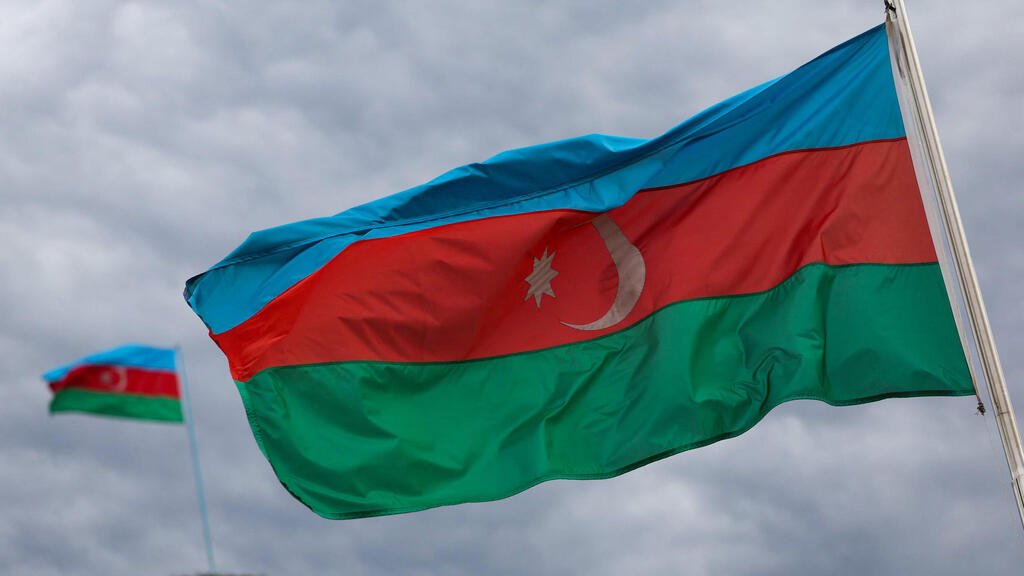It is no surprise the opening of an official Azeri presence in Israel caused the Tehran-Baku relations to sour. This being said, following the October 7 massacre by Hamas and Islamic Jihad, two Iranian proxies, and the war in Gaza that ensued – the tensions between Iran and Azerbaijan assumed yet another dimension.
This was due to the fact that two countries, members of the Organization of Islamic Cooperation (OIC), were supplying oil to Israel: Azerbaijan and Kazakhstan. Of these two oil-rich countries, Azerbaijan is the more important for Israel. Azerbaijan provides Israel with some 40% of its oil consumption. In return it is a recipient of advanced Israeli weaponry worth billions of dollars.
Iran has always worked to recruit Shiite communities into its “Axis of Resistance”. This began with its strategy of warfare by proxy, which focused on Lebanon, Iraq and Yemen. Additionally, Iran sought to penetrate the Shiite community in Azerbaijan. In 2013, Iran established the Husayniyun – the Islamic Resistance Movement of Azerbaijan – in an effort to form a powerful proxy organization in the Caucasus.
The first recruits to the Husayniyun were six Azeri citizens who left for Syria to defend Shiite shrines against Sunni opponents during the civil war against the Bashar al-Assad regime in Syria. Qasem Soleimani, the then-commander of the Quds Force, the Iranian Revolutionary Guards Corps (IRGC) elite unit, personally declared the establishment of the new proxy unit in 2017.
After Azerbaijan emerged victorious against Armenia in the 2020 war, and having regained control of the Nagorno Karabakh region, Azeris in Iran began identifying more strongly with Azerbaijan. At the same time, shortly after the war, Iranian proxy groups, including the Husayniyun, flooded the social media with videos in Azeri, promoting their radical religious ideology. They called for the local Shiites to rise up against the government and attack government buildings in Azerbaijan.
Later on, Iran stoked the unrest against the Azeri government. In response, Baku embarked on a mass oppression drive against pro-Iranian networks in the country. In November 2022, five persons were arrested and charged with . The detainees were accused of having provided the Iranian security agencies information harmful to Azerbaijan’s security.
As Iran shifted its focus toward using its proxies against Israel in the Gaza war, it appears that it has for the time being abandoned its strategy of influencing the Shiite communities in Azerbaijan and that it is now more intent on strengthening its ties with that country.
As part of Iran’s fight against Israel through its proxies, it is attempting to isolate it regionally and internationally, meaning that improving its relations with Azerbaijan is now a high priority. Therefore, despite the tensions between the two countries, Iran and Azerbaijan have begun developing their economic ties, and in particular the trade and transport corridor that is also of interest to the northern neighbor, Russia.
Iran’s relations with Azerbaijan are tense and volatile. It is attempting to exert pressure on Baku following the war in Gaza and the widespread international condemnation of Israel. This being said, it appears that the Iranians do not have sufficient leverage to persuade Azerbaijan to sever its relations with Israel, thereby leaving it alone in the face of the threat from Tehran.
In contrast to the other Shiite regional players, Iran is being unsuccessful in expanding its influence in a large Shiite country like Azerbaijan, as opposed to the successes it has had among Shiite communities throughout the Middle East, harnessing them under its control through local front-line franchises, as is the case in Lebanon, Yemen and Iraq.
• None Eran Lahav is a researcher at the I , specializing in terrorism, global Jihad and Iranian proxies, an entrepreneur and podcast host.
